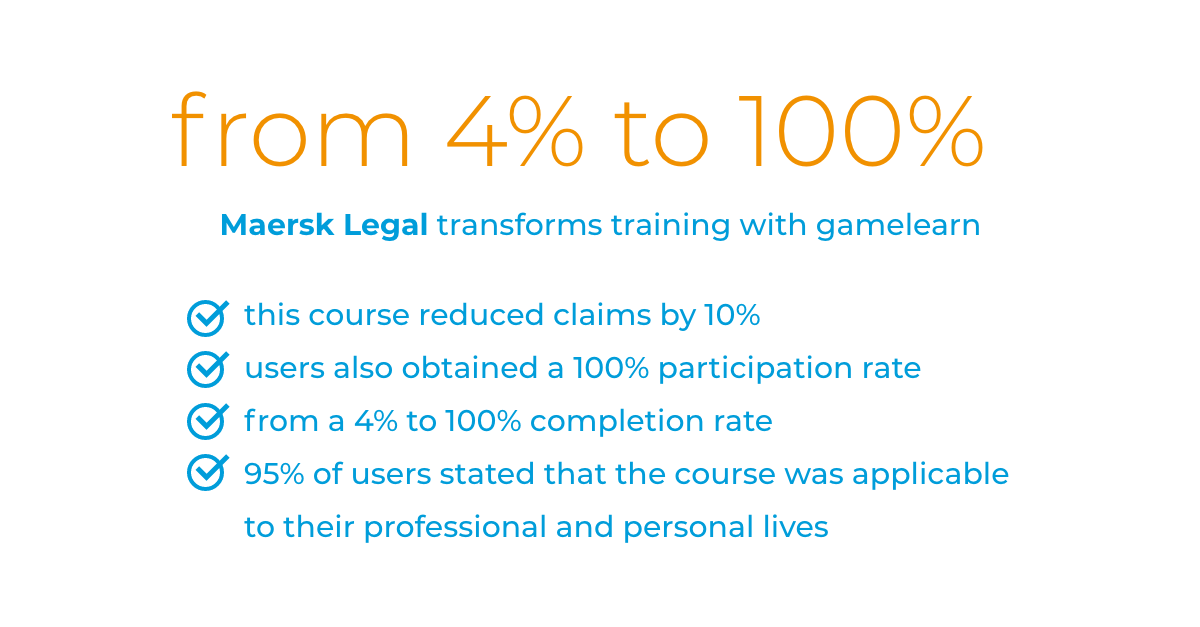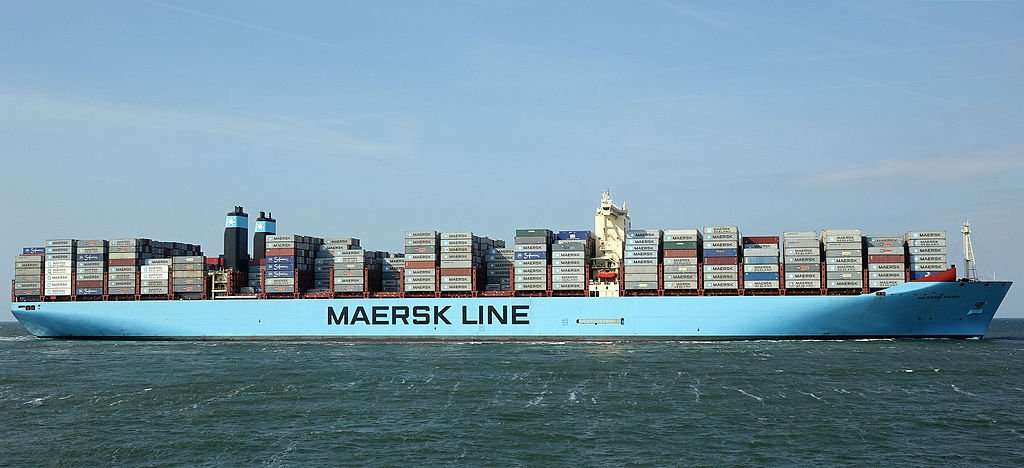Aditi Sharma, L&D manager at Maersk, explains the keys to success in integrating a game-based learning project in this company with almost 88,000 employees in 935 offices scattered throughout 130 countries.
Q: What is Maersk’s activity?
A: Maersk is an integrated transport and logistics company with multiple brands and is a global leader in container shipping and ports. The Group consists of Maersk, APM Terminals, Damco, Svitzer and Maersk Container Industry. The mission of these businesses is to enable and facilitate global supply chains and provide opportunities for their customers to trade globally. They develop solutions that meet customer needs from one end of the supply chain to the other.

The goal: improving the Legal team’s negotiation skills
Q: Which challenges did the company face before choosing game-based learning as a solution?
A: As part of the group, the Legal team is expected to safeguard Maersk’s interests across a range of high-impact deals as well as with incidents with vendors and clients alike, and it’s there where the training requirement was set.
The Legal team handles claims, contract governance, incident management, marine and vessel insurance and deals with global stakeholders on a daily basis. At the time of the deployment of this project, this team was part of the Global Service Centre (GSC) and was responsible for providing end-to-end legal services to various Maersk teams across the world.
The team had some of the lowest training participation/completion rates across all of the Maersk teams, standing at a mere 4%. Building their negotiation skills in order to improve their respective tasks – such as faster contract closure, better recoveries, better claim handling and overall improved stakeholder dialogues, was identified as the major learning need. Traditionally, training at Maersk India involved classroom sessions, which meant very little flexibility for employees and high travel costs for the company. The sessions also ran for one full day, which meant a huge cost to the business in terms of opportunity cost of resources.
Q: Why did they decide to use video games?
A: Merchants was chosen by Maersk for training its Legal team because it was an immersive learning experience and offered something new and meaningful to the entire team. The game was easy to navigate and the real-life case studies offered practical teachings. It offered flexible learning hours, ‘learning anytime, anywhere’, learners could choose to play the course, save their progress as well as having a choice to access the course from a range of devices. At Maersk, this was the first time that gamification was applied to learning, so it
was a calculated risk.
Q: What were the main advantages of this choice?
A: For Maersk Legal, this game had three major advantages. First, simulated, safe learning, since Merchants offered a sophisticated negotiation simulator that gave the participants real hands-on negotiation practice in a safe environment, without any actual financial risk. This was more engaging and immersive than the traditional classroom sessions.

Through the course of the game, players engage in six real negotiations cases, where to proceed, they have to make their own decisions based on available information (as well as information derived from interaction with the simulator) and learn from their mistakes, failures and successes. The simulator fosters the learning-by-doing approach over theory-based learning which suited the agenda of L&D as well.
Secondly, the game was engaging and synergetic. The game-based learning and gamification elements – such as the leaderboard, ranks, money accumulated etc. worked seamlessly as tools for motivation and engagement. Finally, the online, multi-platform format ensured that the training can be provided to teams in Mumbai as well as Pune, thus reducing costs and offered the employees the flexibility to complete the course at their own pace.
You may be interested: Simulators in corporate training
Results: reduction of aging claims by 10%
Q: What results did you get?
A: The amazing results this video game had for Maersk Legal can be illustrated by the following numbers: this course reduced claims by 10%. Users also obtained a 100% participation rate and the company increased the cost avoidance on settling by 10%. All registered employees completed Merchants, whereas the completion rate for this team on other training courses was only 4%. Additionally, 95% of users stated that the course was applicable to their professional and personal lives.





